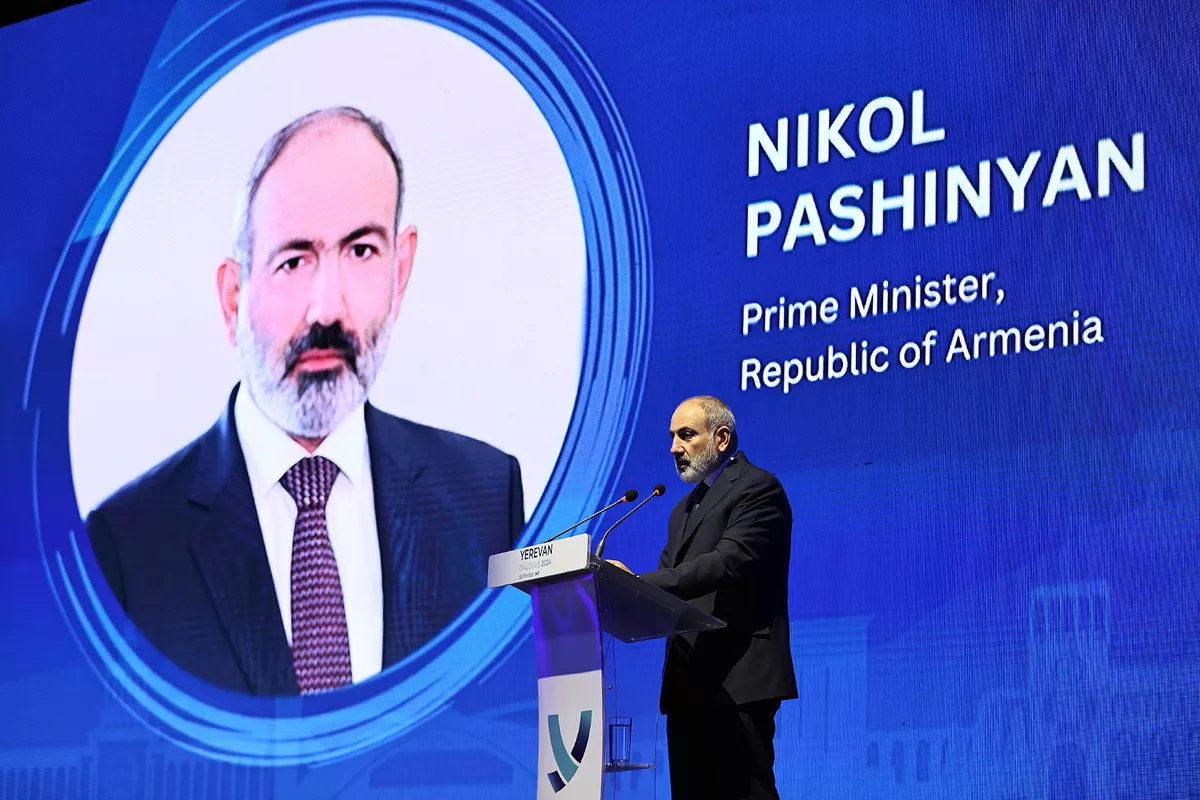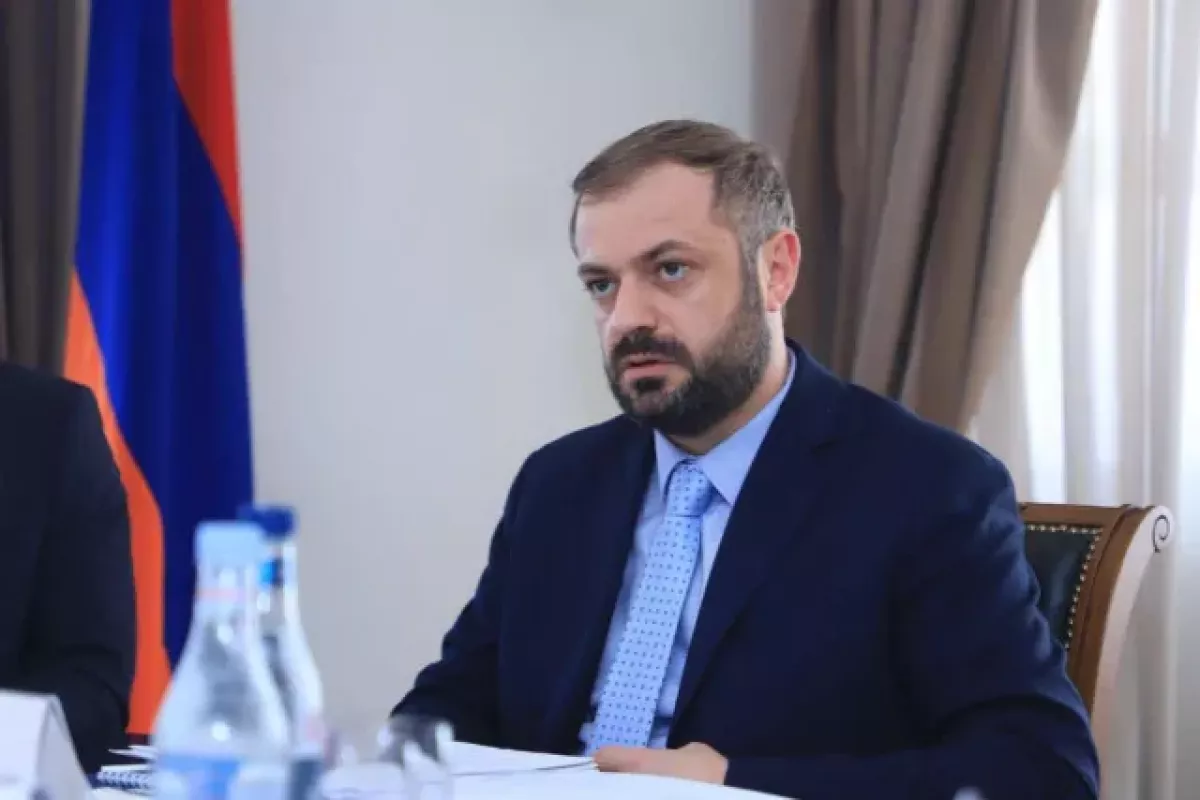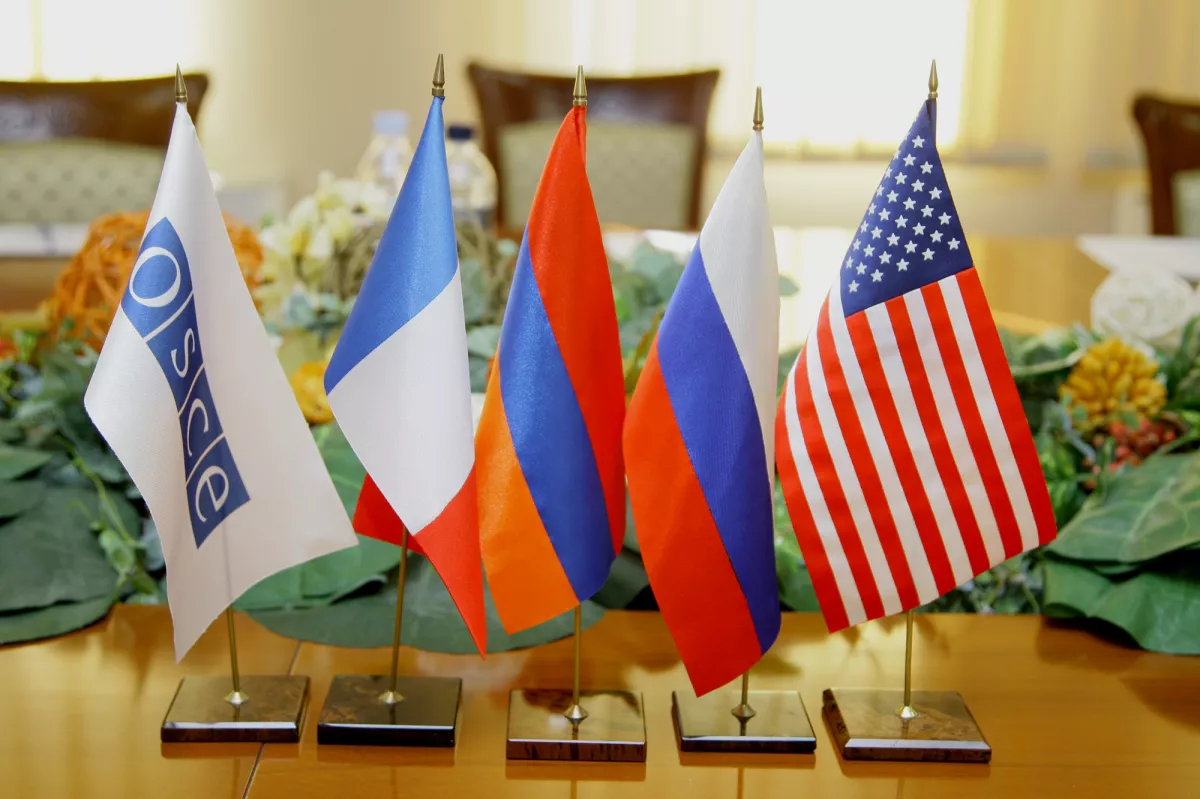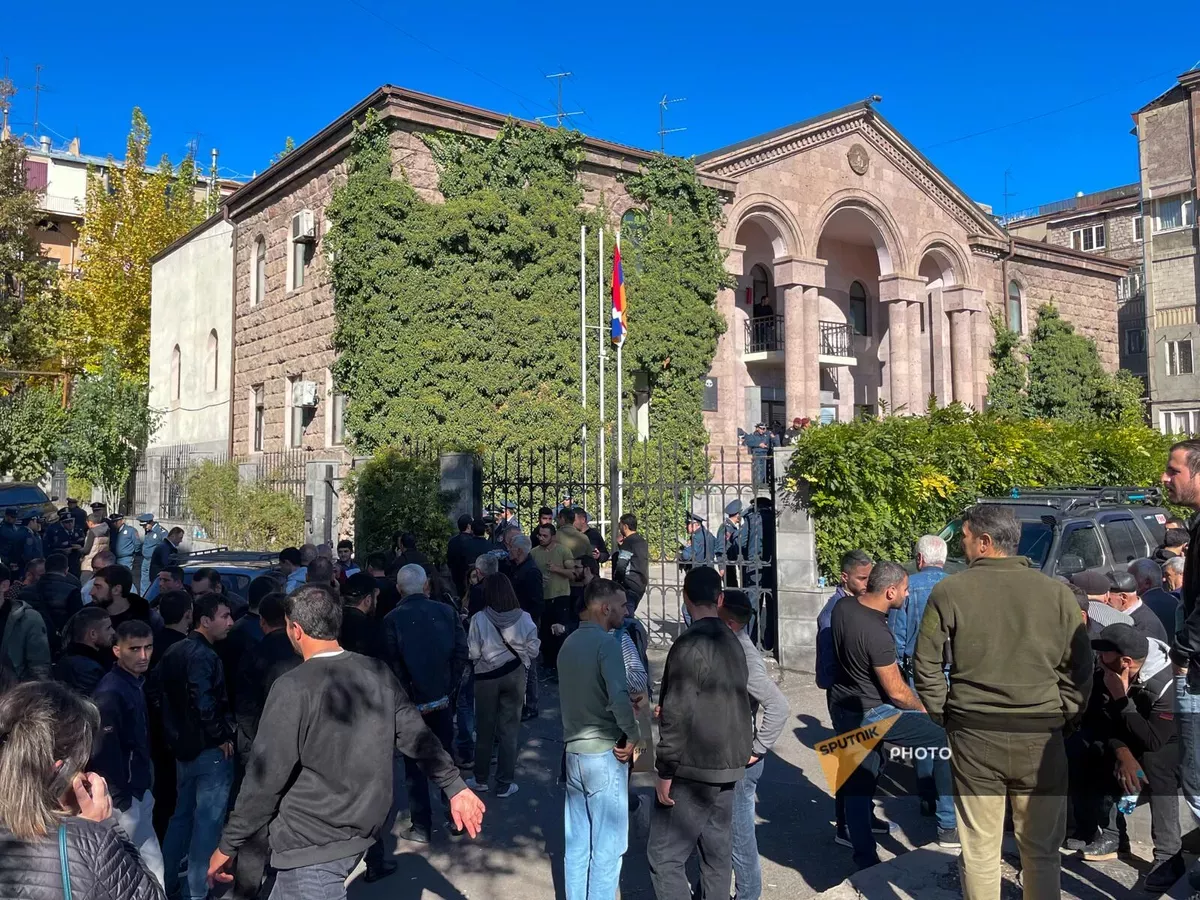Who is not interested in peace: Armenia or Azerbaijan? 5 facts Caliber.Az on Youtube
Immediately after the Second Karabakh War, peace negotiations were initiated at Azerbaijan's request. Unfortunately, despite nearly four years having passed since then, Azerbaijan and Armenia have yet to sign a peace agreement. There are significant reasons for this.
The Armenian leadership’s statements about being ready to sign a peace agreement “any day” seem quite constructive at first glance. However, when comparing these statements with their actual actions, certain questions arise that require closer attention. In this piece, we will examine five factors that, in our view, most accurately reflect the complexities of the negotiation process.
Point One. As Caliber has previously reported, on September 10, during the opening of the international forum "Yerevan Dialogues," the Armenian Prime Minister stated that 13 points and the preamble of the peace agreement text have been fully agreed upon, and three points have been partially agreed upon. "I want to confirm our, my readiness to sign the agreed text on establishing peace and relations as soon as possible. We propose taking what has already been agreed upon, signing it, having a fundamental document, and then continuing discussions on the remaining issues," said the Prime Minister of Armenia.
It should be emphasized that, to date, there have already been ten exchanges of comments on the draft peace agreement, during which certain provisions and formulations were agreed upon. The latest exchange was delayed by 70 days: Armenia sent its next version only in early September, despite Baku submitting its comments as early as June 24. In the new Armenian draft, the unresolved provisions were simply excluded, giving the impression that Yerevan is deliberately sidestepping key aspects of the peace process.

In other words, amid the growing revanchist sentiments in Armenia, Pashinyan's government is attempting to remove all problematic issues from the peace agreement text, proposing to sign an incomplete document. From Baku’s perspective, such a truncated version is unlikely to secure a lasting peace between Azerbaijan and Armenia. On September 10, Pashinyan stated, quote: “At the moment, 13 points of the draft and the preamble of the agreement have been fully agreed upon. Another 3 points, which consist of two proposals, have been partially agreed upon; to be more specific, one of the proposals has been agreed upon, the other has not.”
It is surprising that, despite the existing disagreements, the Armenian side is pushing to sign a truncated version of the peace agreement, although Pashinyan himself previously stated, quote: “For the agreement to be signed, all principles within it must be agreed upon.” A similar stance was earlier voiced by the Secretary of the Security Council, Armen Grigoryan: “In negotiations, there is such an approach: if everything is not agreed upon, then nothing is agreed upon.”
Point Two. As noted by the Azerbaijani side, one of the main obstacles to a peace agreement is Armenia's refusal to amend its constitution. Armenian Prime Minister Nikol Pashinyan, speaking at the "Yerevan Dialogue" forum, stated: "There is nothing in the Armenian Constitution about what they are trying to attribute to us," commenting on Baku’s claims that Armenia has territorial claims against neighbouring states in its constitution.
To clarify the situation, let us refer to the preamble of the Armenian Constitution, which states, quote: "The Armenian people — taking as a basis the fundamental principles of the Armenian Statehood and the nation-wide objectives enshrined in the Declaration on the Independence of Armenia…". In the Declaration itself, it is stated: "The Supreme Council of the Armenian Soviet Socialist Republic, expressing the united will of the Armenian people, based on the December 1, 1989, joint decision of the Armenian SSR Supreme Council and the Artsakh National Council on the ‘Reunification of the Armenian SSR and the Mountainous Region of Karabakh’..."
Pashinyan, however, claims: "Despite various interpretations, this does not mean that the entire content of the Declaration of Independence is included in the Constitution of the Republic of Armenia, and the content of these two documents is identical." He tries to argue that only those provisions of the Declaration of Independence that are expressed explicitly and verbatim are reflected in Armenia's Constitution, and any other interpretation is inadmissible. This statement is controversial, considering that the preamble of the Constitution still references the Declaration, which mentions the so-called "reunification of Armenia and Karabakh."
The Azerbaijani side considers this a major obstacle to signing a peace agreement. Armenia, on its part, emphasizes that it has no intention of amending its constitution. "Armenia will not amend its constitution at Azerbaijan's request. Armenia will not change its constitution at the request of any country," said Gevorg Papoyan, deputy chairman of Pashinyan's party and Minister of Economy, in August.

Gevorg Papoyan
Baku has repeatedly emphasized that it will not sign a peace agreement that could potentially be declared invalid by Armenia's Constitutional Court. According to Article 5 of the Constitution of the Republic of Armenia, if international treaties ratified by Yerevan contradict the republic's laws, the provisions of international treaties take precedence. However, this rule does not apply to contradictions between international treaties and the constitution itself. The third paragraph of Article 116 of the Armenian Constitution clearly states: " International treaties contradicting the Constitution may not be ratified."
Even if we assume that Pashinyan manages to ratify a peace agreement with Azerbaijan without amending the constitution, this does not eliminate the risks. Any Armenian citizen, and especially future authorities, could appeal to the Constitutional Court to declare the agreement invalid for being in contradiction with the Constitution.
Incidentally, it appears that the issue of constitutional revision will not be considered before 2027. Armenian Justice Minister Grigor Minasyan has stated: "We need a new Constitution, not just constitutional amendments. We have discussed and reached a consensus on this issue," Minasyan told reporters. Despite this, the Armenian side is insisting on signing a truncated peace agreement now.
Point Three. However, Azerbaijan fully understands that drafting a new constitution and holding a referendum are processes that take more than a day or even a month. Although Armenia has had a full four years since November 2020 to bring its legislation in line, at this stage, Yerevan could have responded positively to Baku’s proposal — to jointly appeal to the OSCE for the legal dissolution of the OSCE Minsk Group. Yet, even here, Pashinyan seems to be in no hurry.
"Yerevan does not rule out the possibility of dissolving the OSCE Minsk Group, but only on the condition that peace is reached with Azerbaijan. The existence of this format may raise questions once peace is established. The question is only about timing. Is it even worth discussing this issue now?" Pashinyan recently stated at a press conference.

Thus, a vicious circle arises: Azerbaijan offers Armenia, as a gesture of goodwill and an important condition for the peace agreement, to jointly appeal to the OSCE for the legal dissolution of the Minsk Group. In response, Yerevan states that it is ready to do this only after the peace agreement is signed. In Baku's view, the formal preservation of the Minsk Group serves one purpose — to create opportunities for new territorial claims against Azerbaijan.
Point Four. Against this backdrop, Armenia continues to build up its military capabilities. According to Armenian media, the country's defence budget for 2024 has increased by approximately 10%, reaching 555 billion drams (over $1.42 billion). For comparison, this figure was about $1.3 billion in 2023.
Recently, the Armenian government presented the draft state budget for 2025 to the parliament, which was approved by the cabinet of ministers on September 26. According to this document, defence spending will increase by another 20% compared to the current year, reaching over $1.7 billion, which is $283 million more than in 2024.
Defence spending for the Ministry of High-Tech Industry will also nearly double, reaching 47.5 billion drams, or approximately $122 million. At the same time, investments in the development of defence technologies will remain at $15 million.
In comparison, Azerbaijan plans to allocate 6 billion 658.3 million manats (about $3.91 billion) for defence and security in 2025. This figure is 6.6% lower than the approved forecast for 2024. Furthermore, 4 billion manats (around $2.36 billion), or 10.1% of the state budget, will be directed toward the restoration and reconstruction of territories liberated from occupation.
These figures clearly illustrate the differences in priorities: while Armenia continues to increase its military spending, Azerbaijan allocates significant resources for the restoration of liberated territories.
And finally, Point Five. In Armenia, the representation of the so-called "Nagorno Karabakh Republic" continues to operate freely, and individuals representing this self-dissolved and unrecognized entity make provocative statements. Here’s a recent news item: "The doors of the representation (in quotes) of the 'Republic of Artsakh' in Armenia will be open on September 2 for anyone wishing to celebrate (in quotes) the 'Independence Day of the NKR.'"

Another example is the ceremony for the laying and consecration of the foundation of the "Call of Artsakh" memorial in "Yerablur." The event was attended by the last head of the puppet entity, Samvel Shahramanyan, and the so-called "head of the Artsakh Diocese of the Armenian Apostolic Church," Vrtanes Abramyan. The Armenian authorities could have easily curtailed such a gathering and prevented provocative statements. However, the event still took place.
In this matter, it seems that both the Armenian authorities and the opposition present a united front. Such a project could not have even begun without the consent of the country's leadership. Moreover, the laying and subsequent installation of a memorial with such a provocative name in a military pantheon would hardly have occurred without the approval of Prime Minister Nikol Pashinyan.
In summary, the five points we presented highlight significant disagreements between Azerbaijan and Armenia regarding the signing of a comprehensive peace agreement. They clearly demonstrate the complexity of the situation and the differences in the positions of the parties: one is focused on long-term peace, while the actions of the other suggest preparations for a new confrontation.








